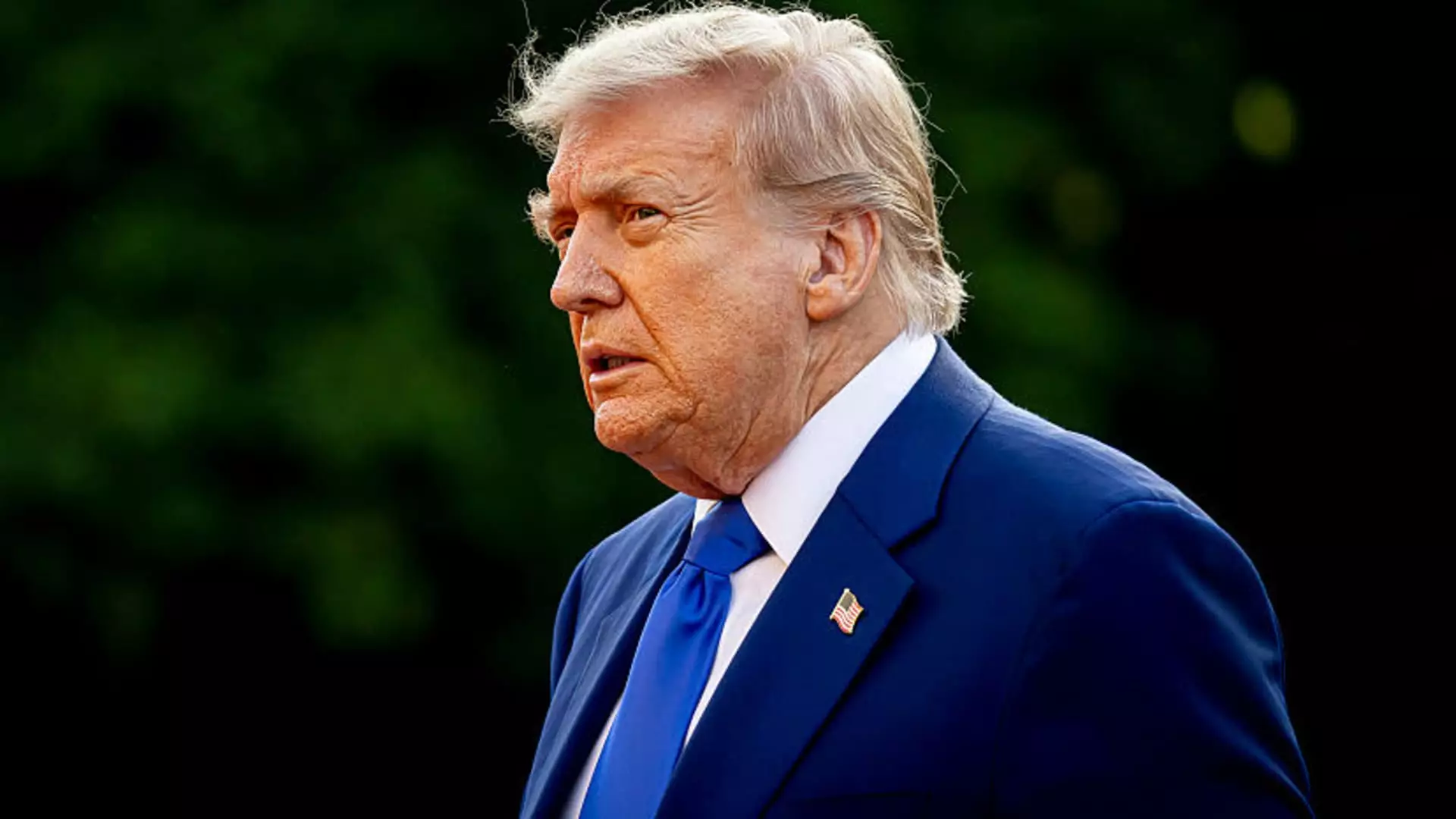In a political landscape riddled with volatility, President Donald Trump’s move to potentially extend the deadlines on self-imposed tariffs poses a multitude of concerns that deserve deeper scrutiny. Initially setting forth July as a milestone for trade agreements, recent comments from White House Press Secretary Karoline Leavitt reveal a troubling inclination towards procrastination. Rather than adhering to established timelines that foster predictability in global commerce, the administration appears willing to extend “critical” deadlines indefinitely, undermining the very purpose of these tariffs and turning negotiations into a fruitless waiting game.
Tariffs are not just tools for economic leverage; they are also signals of intent. When President Trump threatened a whopping 50% tariff on the European Union and subsequently offered an extension in lieu of negotiations, he sent mixed messages to both allies and adversaries. This dance between aggression and appeasement feeds a narrative of uncertainty, makes America look indecisive, and diminishes the nation’s credibility in international trade discussions. One wonders whether this continuous delay is a sign of genuine negotiation strategies or merely a desperate effort to save face.
The Economic Consequences of Hesitation
To assert that delaying tariffs is a responsible economic strategy is to overlook the very real financial implications that come with such indecision. As stocks surged following Leavitt’s comments, one might assume that the market welcomes the uncertainty. In reality, this momentary boost is superficial and predicated on the false hope that regulatory maneuvers will yield beneficial outcomes. Investors thrive on predictability, and the uncertainty surrounding these tariff timelines could sow seeds of doubt, leading to erratic fluctuations and potentially detrimental long-term consequences for American businesses and consumers.
The ‘reciprocal tariff rate’ that Leavitt hinted at sounds tantalizing, but it underscores a fundamental flaw in the administration’s approach. The assumption that tariffs can be selectively adjusted based on subjective assessments of “advantage” reveals an economic strategy that lacks cohesion and foresight. If trade deals hinge precariously on the whims of leadership rather than established agreements, it creates a climate ripe for exploitation by countries brewing their own plans outside the U.S. sphere of influence.
International Relations Under Strain
The art of negotiation is marred by Trump’s reluctance to commit to firm deadlines. The varying degrees of progress made in negotiations with other countries, notably China and the United Kingdom, seem to suggest that these “frameworks” are merely placeholders in a broader strategy that lacks an actionable roadmap. How can meaningful relationships be built when one side is constantly dangling deadlines? A lack of concrete agreements fosters distrust, negating the potential for beneficial compromises in the long run.
One would think that Trump’s administration, seeing as it prides itself on tough negotiating tactics, would stick to its guns regarding established timelines. Instead, the prospect of extending the July 8 deadline reflects a level of insecurity that could leave the U.S. vulnerable to retaliatory actions. The allegiances built through trade depend on mutual respect and solid agreements; therefore, the U.S.’s visible hesitance could encourage opportunistic maneuvers from other nations that are eager to capitalize on apparent weaknesses.
The Broader Implications of Commerce Today
In the grand tapestry of American economic policy, tariffs are but one thread. However, they embody broader themes of national identity and purpose in a global economy. As the months unfold and deadlines extend, a critical question arises: What message do we send to the international community about our commitment to trade? Will we allow fleeting political agendas to supersede weighted economic principles that have historically guided successful diplomacy?
It is disheartening to witness an administration that seems more focused on negotiating through theatrics rather than substantive achievements. The focus should be on fostering stability, engagement, and inclusive dialogue, instead of a tendency towards procrastination-filled negotiations. Real change won’t happen through inflated tariffs or deferred deadlines; it demands courage, commitment, and, above all, clarity of purpose.

Leave a Reply